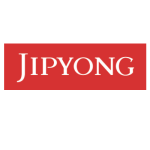2021 was a landmark year in the history of business and human rights (BHR) in South Korea as the Framework Act on Human Rights Policy, a legislative bill setting out “corporate responsibility to respect human rights”, was finally passed by the Cabinet Meeting of the Republic of Korea on December 28 2021.
Moreover, in August 2021 Korea Corporate Governance Service (KCGS), the largest ESG rating agency in South Korea, amended the ESG Best Practice Guidelines for corporates to conduct human rights impact assessments, while SK Hynix published its Human Rights Report in July 2021, the first report of its kind among large domestic companies.
The idea of BHR, therefore, has expanded significantly in both the public and private sectors in the past year in South Korea.
This article addresses South Korea’s BHR trends during the past 10 years. In short, the discussion on BHR, which began in the public sector under the leadership of the National Human Rights Commission of Korea (NHRCK), seems to be expanding into the private sector along with recent ESG trends.
NHRCK’s effort to expand human rights management
Since the UN Human Rights Council unanimously endorsed the UN Guiding Principles on Business and Human Rights (UNGPs) in 2011, NHRCK has started to engage in various activities in expanding BHR in South Korea. Together with experts, NHRCK started to develop human rights management guidelines in 2012. It issued a decision on Recommendation of an Introduction of the Guidelines for Human Rights Management and Checklist to the heads of 117 public institutions on September 25 2014. This decision was made to apply the Guidelines and Checklist on a trial basis to the 30 public enterprises and 87 quasi-governmental institutions.
Under the National Human Rights Commission of Korea Act, NHRCK may recommend related agencies to improve or correct their specific policies and practices. The heads of relevant agencies who receive such a recommendation shall notify NHRCK of the implementation plan within 90 days (Article 25 of the Act). Of the 117 public institutions that received the initial recommendation decision from NHRCK, 115 accepted it and inspected their human rights management practices according to the Guidelines and Checklist.
Taking a step forward, NHRCK made two critical decisions in 2016.
First, on February 25, NHRCK recommended the Minister of Economy and Finance to reflect human rights elements in the management evaluation indicators for public institutions. The Minister was requested to improve the management performance evaluation system so that public institutions can better reflect their efforts to introduce and implement human rights management.
Second, on September 7, NHRCK recommended that the government establish National Action Plans (NAP) on BHR. This means that the state should develop comprehensive and systematic action plans to prevent companies from violating human rights and guide them to promote human rights-friendly business activities.
Evaluation system improves
According to the Act on the Management of Public Institutions of Korea, the Minister of Economy and Finance shall evaluate the management performance of public institutions (public enterprises and quasi-governmental institutions) annually. They will determine performance incentives for the heads, officers, and employees of the public institutions based on the evaluation results (Article 48 of the Act). South Korean public institutions are very sensitive to the management evaluation results, and how the evaluation indicators are made up significantly affects their management strategies.
Reflecting the recommendation of February 2016 from NHRCK, the government included human rights as one of the detailed evaluation items in the management performance evaluation for public institutions. In particular, the Democratic president Moon Jae-in, who took office in May 2017, accelerated the improvement of the management performance evaluation system by introducing “lead public entities that are realising social values” as one of the 100 Policy Tasks during his administration.
In December 2017, the Ministry of Economy and Finance also completely reorganised the "Guidebook on Management Performance Evaluation of Public Institutions" and included “realisation of social values” as one of the main evaluation indicators. Moreover, with the inclusion of “ethical management” consisting of various human rights-related activities as one of the sub-indicators (see the table), public institutions have started to be evaluated by the government every year regarding their human rights management practices.
Main indicator |
Sub indicator |
Detailed evaluation item of the sub indicator |
Implementation of social values |
Ethical management |
(iv) Efforts and activities to respect human rights such as human rights education, remedy procedures for human rights violations, etc. * Protection of human rights of employees and external/internal stakeholders, such as an operation of grievance mechanism |
Although the proportion of human rights in the overall management evaluation was only about 1 out of 100 points, its impact was significant. Public institutions subject to the management performance evaluation have started to conduct the human rights impact assessment and established a grievance mechanism to meet the evaluation scores.
Issuing the Human Rights Management Manual for State-Owned Enterprises (SOEs) on August 9 2018, NHRCK recommended that the heads of all 988 SOEs – including public enterprises, quasi-governmental institutions, and local public enterprises – practise human rights management by applying the manual. The following year on February 19, 860 of the 988 SOEs declared that they would establish implementation plans for the human rights management and promote the human rights impact assessment.
In addition, NHRCK recommended the government make human rights management an independent evaluation indicator in the management performance evaluation system and increase the allocation of evaluation points. Following this recommendation, the evaluation system for local public enterprises was amended in May 2019, and efforts are underway to improve the evaluation system for the remaining central public institutions.
The Human Rights Management Manual for SOEs suggests four steps for human rights management: i) establishment of a human rights management system; ii) implementation of a human rights impact assessment; iii) implementation and disclosure of human rights management; and iv) provision of remedy procedure.
It is specified that the step in item ii) human rights impact assessment includes the Human Rights Impact Assessment in Key Businesses in addition to the Human Rights Impact Assessment in Operating SOEs. According to the survey conducted by NHRCK in 2020, 25% of the SOEs separately conducted the human rights impact assessment of their key businesses which may affect the human rights of citizens and other stakeholders.
The move to institutionalise BHR
The government made efforts to institutionalise BHR for both the public and private sectors. When the government finalised the Third NAP (2018-2022) on August 7 2018, it accepted the recommendation of NHRCK by establishing a new chapter of BHR. It also presented tasks under the master plan to institutionalise human rights management and enhance the effectiveness of the grievance mechanism and remedy procedure.
|
|
“2021 was a landmark year in the history of business and human rights in South Korea as the Framework Act on Human Rights Policy was finally passed by the Cabinet Meeting of the Republic of Korea on December 30 2021” |
|
|
In the meantime, on December 30 2021, the Cabinet Meeting passed the proposed Framework Act on Human Rights Policy jointly enacted by NHRCK and the Ministry of Justice. The proposed Framework Act provides for “corporate responsibility to respect human rights” (Article 17) and “government’s efforts for prevention of companies’ human rights violation” (Article 18) in Chapter 5 Business and Human Rights.
Article 17 reads: “Companies shall not violate human rights of other people or contribute to any third party’s violation of human rights of other people through business activities at home or abroad” and: “Companies shall in advance establish a process under which a victim may request a remedy in case their business activities would cause a violation of human rights and make efforts to provide appropriate means of remedy.” The proposed Framework Act contains the basic principles of UNGPs, in the sense that companies shall not contribute even to a violation of human rights that may be caused by a third party abroad.
In addition, Article 18 of the proposed Framework Act provides that the government may establish laws and policies to prevent companies from violating human rights; distribute detailed guidelines and standards for companies to practise corporate responsibility and respect human rights; and disclose best practices of corporate responsibility to respect human rights.
In this regard, the Ministry of Justice issued the Business and Human Rights Guide on December 23 2021. This can be seen as the government providing non-binding guidelines to support private companies that voluntarily practise corporate responsibility to respect human rights.
BHR spreading to private sectors
Despite the government’s efforts, BHR practice has not made much progress in the private sector in South Korea. Of course, a number of large corporations have published sustainability reports since the early and mid-2000s and have disclosed corporate activities with respect to human rights. However, the UN Working Group on BHR, which visited South Korea in 2016, stated that South Korean companies “generally did not go into detail about steps taken to identify risks and prevent and remedy human rights harm”, although they followed the Global Reporting Initiative G4 guidelines in their sustainability reports.
Yet, it is encouraging that private companies are paying more attention to human rights with the recent spread of ESG investment. In particular, KCGS significantly revised the ESG Best Practice Guidelines in August 2021 to explicitly incorporate the principles of UNGPs, such as commitment to a human rights policy, implementation of a human rights impact assessment and establishment of a grievance mechanism. As a result, listed companies in South Korea that are rated for ESG by KCGS need to consider conducting the human rights impact assessment accordingly.
Furthermore, the mandatory human rights due diligence laws of Europe have a direct influence on South Korean global corporations. Those South Korean corporations included in the global value chain of European companies are getting ready to conduct human rights due diligence in line with the new German Act on Corporate Due Diligence in Supply Chains and the European Commission’s Proposal for a Directive on Corporate Sustainability Due Diligence.
Implications and outlook
As discussed earlier, the idea of BHR in South Korea has been facilitated by NHRCK’s active recommendation decisions as well as the improved management performance evaluation system for public institutions. It is also expected that public institutions have been preventing human rights violations in their supply chains and the market to some extent by conducting human rights impact assessments, as public institutions account for a significant proportion of the Korean economy.
For example, the budget of 350 public institutions in South Korea reached KRW649 trillion (approximately $0.53 trillion) in 2019, about 1.4 times the national budget. However, criticisms have also been raised that the human rights impact assessment was conducted by public institutions simply to acquire management evaluation scores.
Human rights due diligence by private companies in South Korea is still in the early stages. While more than 130 large corporations in South Korea have consistently published sustainability reports and conducted materiality assessments for the past decade, reflecting that companies are showing growing interest in human rights, many of them are still unsure about how to conduct human rights due diligence.
Some large corporations, such as Samsung, have proactively conducted human rights impact assessments with the assistance of global NGOs. However, their procedures or methodologies have never been disclosed publicly. Thus, best practice cases have not been shared in the market. It seems clear that the more that leading cases of human rights due diligence are shared in the market, the faster the development of BHR in South Korea will be.
Click here to read all the chapters from IFLR ESG Asia Report 2022

Sung Taek Lim
Managing partner
Jipyong
T: +82 2 6200 1746
Sung Taek Lim is a managing partner at Jipyong. He has extensive experience in crisis management, public policy and compliance. He has used his considerable experience in corporate and pro bono services to handle CSR, social value, and impact investment. He is also one of the top ESG experts in Korea.
Sung Taek is deeply committed to pro bono work such as protecting human rights for minority groups and activities related to public-interest law. He served as a commissioner of the National Human Rights Commission of Korea.

Chang Wook Min
Partner
Jipyong
T: +82 2 6200 1841
Chang Wook Min is head of the compliance team at Jipyong ESG centre. He focuses on matters related to corporate sustainability, ESG, compliance and human rights. He is the co-author of the Labour Laws of the Republic of Korea and 2018 Human Rights Report (Labour Rights Section) published by the Korean Bar Association. He served as a Commissioner of the Human Rights Committee in the Seoul Bar Association.
Chang Wook earned a master’s degree in public affairs with the Bardach Prize for Outstanding Capstone at UC Berkeley in 2020. He received a JD from the Seoul National University.



